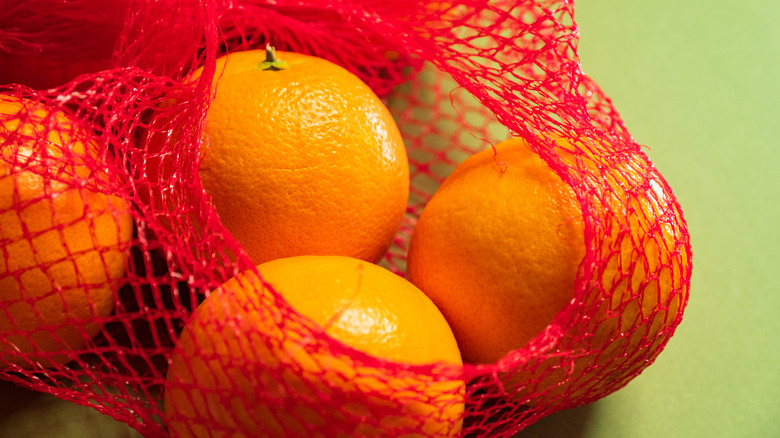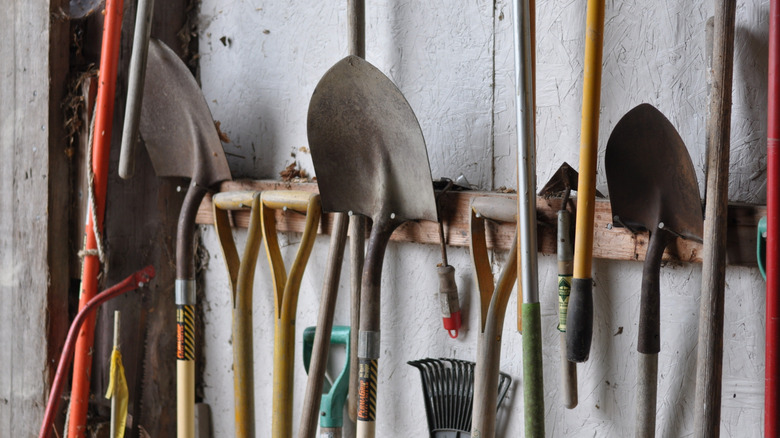Why You Should Keep Leftover Mesh Produce Bags In Your Garden Shed
Gardeners know all too well the pain of rusty tools. It doesn't matter whether you're a seasoned veteran or a beginner planting your first easy-to-grow cucumbers. Either way, it's hard to do much without your trusty gardening equipment. Fortunately for you, there's an easy way to protect your tools and lighten the load on your garbage bin at the same time. All you have to do is keep a couple of leftover mesh produce bags in your shed to hold things together.
Often, bulk produce like onions and oranges are sold in mesh bags to make them last longer. As they ripen, they release a substance known as ethylene gas, which makes them go bad faster, but the mesh bags allow airflow to disperse the ethylene and prevent spoilage. You can employ a similar concept with your garden tools. Your trowel isn't releasing ethylene, but, after use, leftover moisture on your tools can cause rust if they are stored in enclosed containers. A mesh bag, however, can allow your tools to dry out and avoid that rust, just like it lets produce stay fresh.
And this trick isn't just good for your tools. Using those bags in your shed will also keep them out of the landfill. There are plenty of ways to reuse things that would ordinarily go in the trash, like watering your plants with an empty wine bottle by filling it with water and sticking it neck-down in the soil. Reusing mesh bags this way is better for your tools and the environment.
Best tips for using mesh produce bags with gardening tools
To get started on organizing your garden equipment with mesh bags, first you need to source the right kind. Many of the plastic netted bags you'd take oranges home in have larger holes that your tools can slip through or damage more easily, so it's best to skip those. The holes in onion bags are typically smaller, which will better allow them to hold your tools while maintaining airflow. So, next time you buy some onions, don't throw out the onion sacks (which also have a use in the garden itself).
Avoid keeping your bagged tools on a shelf. It's a potentially awkward setup, and you run a greater risk of knocking them over, which can lead to injuries or damaged goods. In addition, moisture could just collect below them, leaving shelving vulnerable to rot and the tools to rust regardless of airflow. Hang up your bags on a wall, preferably with something that aids organization. A key holder can help to arrange all of your bags, for example, or you can hang them from metal or plastic hooks distributed evenly throughout your space.
Finally, label your tools to better identify them at a glance, since the bag might obscure things. Whether it's a whiteboard, another sort of sign, tags, or even just writing "trowel" on the bag in Sharpie, labeling your tools will help keep them much better organized.

